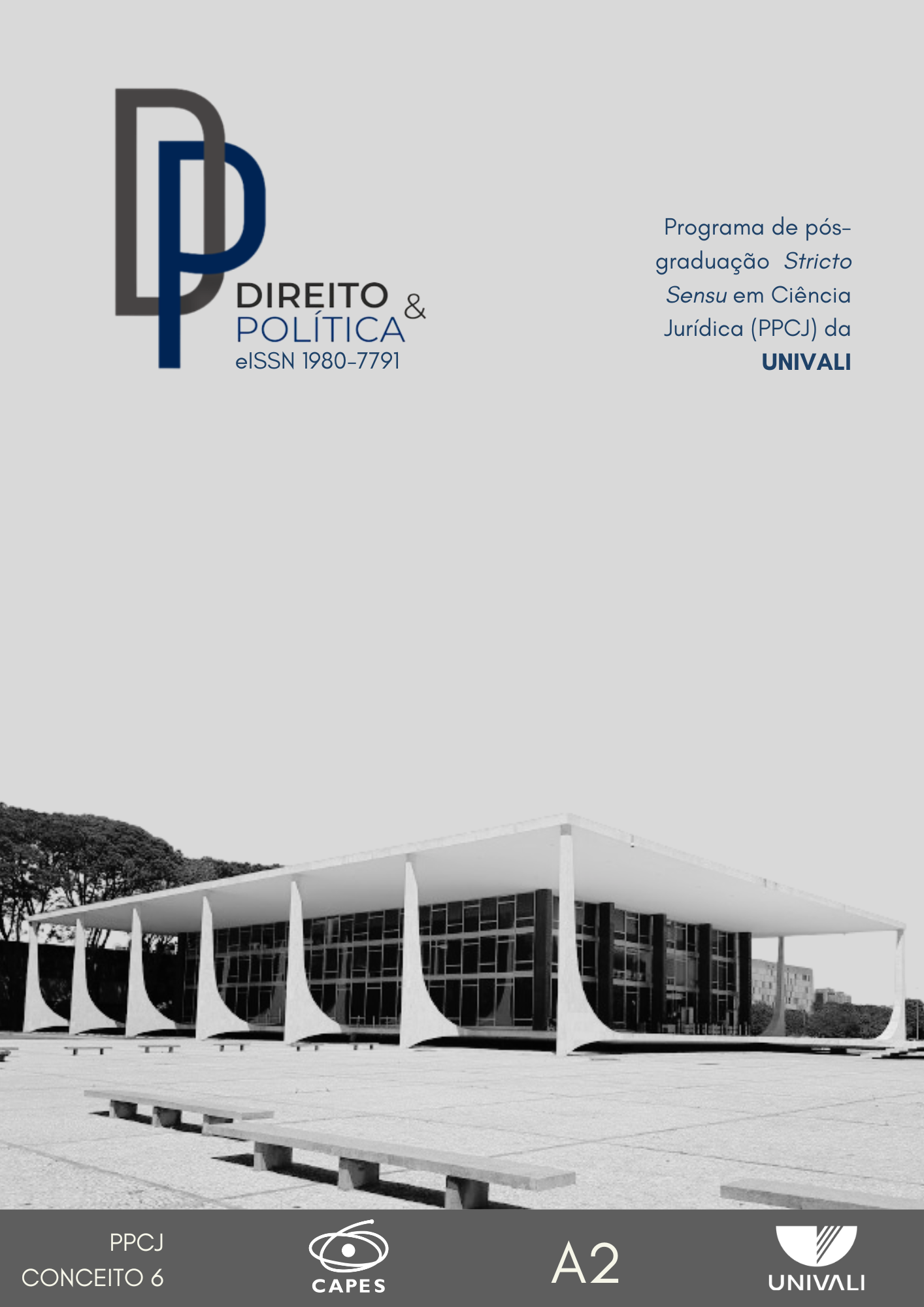THE FINANCING OF WOMEN'S CAMPAIGNS AND ADI 5617: A MATTER OF DEMOCRACY
DOI:
https://doi.org/10.14210/rdp.v19n2.p146-166Keywords:
Financing of female campaigns, Direct Action of Unconstitutionality, Supreme Federal Court, Popular Sovereignty, DemocracyAbstract
Context: The Brazilian Supreme Federal Count(STF), in judging ADI No. 5617, declared unconstitutional parts of Law No. 13,165/2015, determining, on the same occasion, that political parties allocate at least 30% of their background resources for women's campaign financing. Subsequently, the Legislative Power promulgated Constitutional Amendment No. 117/2022 maintaining the 30%, but contradicting some of the Supreme Court's deliberations by allowing, for example, amnesty for parties that may not have complied with the mentioned percentage. The controversy surrounding these legislations reveals a conflict between the Legislative and Judicial branches, especially the STF, regarding this funding.
Objectives: Este artículo tiene como objetivo discutir la relación entre los poderes en Brasil, teniendo como objeto de análisis la controversia entre el Supremo Tribunal Federal y el Legislativo sobre la política de financiamiento de las campañas de las mujeres, con el fin de analizar los límites de la actuación del Tribunal Constitucional al establecer parámetros legislativos para esta financiación.
Method: A deductive method was used to examine the above questions. Data analysis was also employed, as the possible positive outcomes of allocating the mentioned resources were examined throughout the study.
Results: In the end, it was found that the Federal Supreme Court exceeded its constitutional-institutional limits by creating legislative parameters for the financing of women's campaigns, in opposition to what had been decided by the Legislature. In fact, faced with two ways of supporting and encouraging women's political participation – political training programs or financing of candidacies – Congress, which is responsible for the country's political decisions, chose to favor one of them, without abandoning the other.
Downloads
References
BRASIL. Ação Direta de Inconstitucionalidade nº 5617. Disponível em: https://redir.stf.jus.br/paginadorpub/paginador.jsp?docTP=TP&docID=748354101. Acesso em: 27/03/2024. P. 21-22
CAMPOS, Ligia Fabris. Litígio estratégico para igualdade de gênero: o caso das verbas de campanha para mulheres candidatas. Revista Direito e Praxis, v. 10, n. 1, 2019. DOI: https://doi.org/10.1590/2179-8966/2019/39816. Acesso em 27-03-2024. DOI: https://doi.org/10.1590/2179-8966/2019/39816
MARINONI, Luiz Guilherme. Processo constitucional e democracia. 2 ed. São Paulo: Revista dos Tribunais, 2023.
MARTINS, Ives Gandra. Uma breve teoria do poder. 4ª ed. São Paulo: Revista dos Tribunais, 2021.
MÜLLER, Friedrich. Quem é o povo? A questão fundamental da democracia. Tradutor: Peter Naumann. 2. ed. São Paulo: Editora Max Limonad, 2000.
VIEIRA, Oscar Vilhena. A Batalha dos poderes. São Paulo: Companhia das Letras, 2018.
WALDRON, Jeremy. Law and Disagreement. New York: Oxford University Press, 1999. DOI: https://doi.org/10.1093/acprof:oso/9780198262138.001.0001
WALDRON, Jeremy. The core of the case against judicial review. The Yale Law Journal, v. p. 1346-1406, 2006. DOI: https://doi.org/10.2307/20455656
Downloads
Published
How to Cite
Issue
Section
License
Na qualidade de autor(es) da colaboração, original e inédita, sobre o qual me(nos) responsabilizo(amos) civil e penalmente pelo seu conteúdo, após ter lido as diretrizes para autores, concordado(amos) com o Regulamento da Revista Eletrônica Direito e Política e autorizo(amos) a publicação na rede mundial de computadores (Internet), permitindo, também, que sua linguagem possa ser reformulada, caso seja necessário, sem que me(nos) seja devido qualquer pagamento a título de direitos autorais, podendo qualquer interessado acessá-lo e/ou reproduzi-lo mediante download, desde que obedeçam os Direitos Autorais.


















